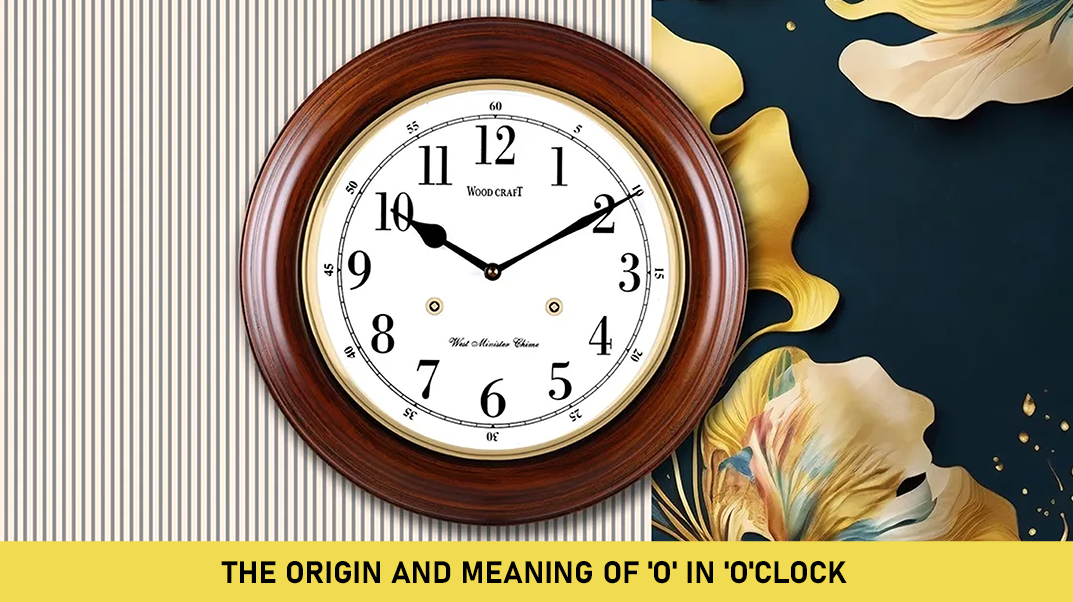The Origin and Meaning of ‘O’ in ‘O’ Clock
The phrase “o’clock” is an integral part of how we express time in modern English. It is used universally to denote hours in the 12-hour clock system, such as “5 o’clock” or “10 o’clock.” However, the origins and meaning of the “O” in “o’clock” often leave people wondering. This seemingly small and simple abbreviation has an interesting history rooted in the evolution of language and timekeeping.
The Origin of “O’Clock”
To understand the meaning of the “O” in “o’clock,” we first need to look at the phrase in its entirety. The term “o’clock” is a contraction of the phrase “of the clock.” This phrase was originally used to differentiate between time told by mechanical clocks and time told by other means, such as sundials or natural events. Before clocks became common household items, people used various methods to keep track of time. These included the position of the sun, the ringing of church bells, or even the crowing of a rooster.
As mechanical clocks became more widespread in Europe during the Middle Ages, the phrase “of the clock” was used to specify that the time being referred to came from these new, more accurate devices. For example, someone might have said, “It is five of the clock,” meaning the time according to the clock is five hours past noon or midnight. Over time, the phrase was shortened to “o’clock” for ease of use, and the “of the” was contracted into just the letter “O.”
The Meaning of “O” in “O’Clock”
The “O” in “o’clock” stands for the word “of.” In old English usage, letters and contractions were often used to shorten common phrases or words. This linguistic shortcut made communication quicker and more efficient in spoken language. The apostrophe in “o’clock” signifies that a portion of the phrase has been omitted, much like in other contractions such as “don’t” (do not) or “can’t” (cannot).
So, when we say “3 o’clock,” we’re essentially saying “3 of the clock,” meaning the time as read from the clock is 3:00.
Timekeeping Before Clocks
Before the advent of mechanical clocks, timekeeping was less precise. People relied on natural markers such as the movement of the sun, moon, and stars, or events like the ringing of church bells to signal specific times of day. The invention of the mechanical clock during the 14th century revolutionized timekeeping by providing a more accurate and standardized way to measure hours.
Mechanical clocks allowed people to divide the day into 24 equal hours, which made it easier to manage work, worship, and daily routines. As a result, “o’clock” became a crucial part of how people referred to time. By saying “of the clock,” individuals could be certain that they were referencing the exact hour as shown on the clock, rather than a rough estimate based on natural or community events.
Modern Usage of “O’Clock”
In contemporary times, the phrase “o’clock” is still widely used, though it is mostly reserved for referencing the time in hourly increments. It is less common to hear someone say “o’clock” when referring to specific minutes or seconds. For instance, people would say “It’s 5 o’clock” instead of “It’s 5:30 o’clock.” In the latter case, simply stating the minutes, like “It’s 5:30,” is the norm.
While “o’clock” is most commonly used in the 12-hour clock system, it’s interesting to note that some languages and cultures have similar expressions to refer to time. These phrases help distinguish hours from other references to time, reflecting the global significance of mechanical clocks.
Conclusion
The “O” in “o’clock” may seem like a small detail, but it holds a fascinating place in the history of language and timekeeping. Derived from the phrase “of the clock,” it serves as a reminder of how mechanical clocks transformed society’s ability to measure time accurately. Today, “o’clock” remains a timeless phrase, connecting modern language with centuries-old traditions.



